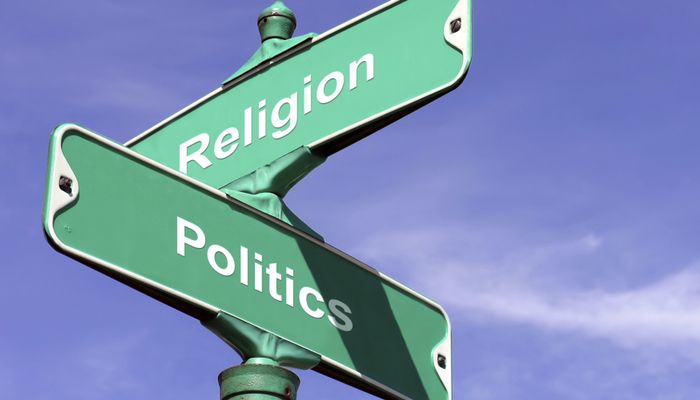
By Miriam Tose Majome THE Church is not an arm of government, but it can be an invisible arm because of the big influence it has on politics. Local churches are often accused of turning a blind eye to government excesses, but they have to for the sake of their own survival. They cannot afford to step on government officials’ toes unnecessarily except every now and then to quell the criticism for their silence.
Churches benefit from government protection and silence over their excesses in exchange for their silence regarding State excesses in turn. Churches benefit from freedom of worship and the absolute independence they are guaranteed by government. They enjoy benefits and preferential treatment such as tax immunity even when the immunity is undeserved. Many churches abuse their tax immune status to conduct profit-making businesses and other clandestine activities, but the government pretends not to see anything for its own survival. Some churches have benefited from huge tracts of State land, so it is in their best interests to support the political leadership of the day.
The relationship between church and State, religion and politics is mutually beneficial because they feed off each other. Politicians know well that the church is a ready-made political constituency to prey on for votes and support when they need it. Political and religious leaders know how to handle each other for the benefit of their respective constituencies. The church cannot be excluded from taking part or commenting on politics because it has a major stake in politics although it often refrains for its own good. It cannot be denied that the complete separation of religion, politics is often just legal fiction.
Historical background In Europe and the Western world, the Roman Catholic Church had the biggest influence on State politics and laws since it was declared the official religion of the Roman Empire by Emperor Theodosius I in 400 AD. Up to the 16th century and beyond, Popes and priests advised and presided over State and monarchy affairs in very powerful capacities. The church benefitted from massive grants of land, prestige and wealth which have persisted to the present day. Rumblings of dissent with the purportedly God-ordained monarchies grew louder with the growing Protestant movement and Republicanism.
The French Revolution between 1789-99 was instrumental in charting the course for the separation of State and church. Since then the church’s influence in government has persisted albeit much less prominently. In the Moslem world, countries like Iran and Pakistan declared Islam as their official religion and follow Sharia law in government administration. Sharia law simply means Islamic law and the rules which regulate the public and private life of Moslems according to their religious texts in the Quran and the Hadith.
Separating the church from the State and striving for secularism is an unending quest. The majority of European countries have struck down many laws that promote religion in public administration and spaces.
The removal of religious symbols such as the Quran, crucifixes and Bibles from public places is an ongoing exercise. In 2004, the French government banned the use of religious symbols from public places and schools. The ban was and is still widely believed to have been aimed at hijabs, the headscarves commonly worn by Moslem women. To balance things out, the ban was extended to the wearing or displaying of crucifixes and Jewish skullcap.
The Gideon Bible Society, an international organisation that distributes free Bibles in hotel rooms and college campuses worldwide, has had to curtail its activities in many regions of the world. Some hotel chains have long since stopped the distribution of Gideon Bibles for fear of legal action threatened by atheists and other religious groups who argue that the ubiquitous presence of the Bibles in their hotel rooms violated their religious rights.
- Chamisa under fire over US$120K donation
- Mavhunga puts DeMbare into Chibuku quarterfinals
- Pension funds bet on Cabora Bassa oilfields
- Councils defy govt fire tender directive
Keep Reading
Zimbabwe has no official State religion although there is a bias towards Christianity for sombre rites. More people claim to subscribe to Christianity than to any of the other religions. Laws are derived from the values, norms and customs of society and religion is particularly influential. Personal religious convictions shape national discourse. People are happier and support the laws when the laws reflect their own subjective views. Laws are perceived more favourably when they reflect the religions people subscribe to. This leads to the inevitable conflation between legal, moral and religious arguments. It is a struggle for some religious people to accept that the rights of all citizens are protected by the law including people considered undesirables like homosexuals and convicted criminals.
Many religious people struggle with secular laws like those pertaining to capital punishment, abortion and contraception because they contradict their religious convictions. The fear is that if no moral control is exercised by government, Parliament will pass immoral laws. This contrasts sharply to secularism which seeks to exclude religion from governance and public administration because religion is believed to cause more harm than good in society. There is no evidence that shows countries with official State religions and high numbers of citizens who profess high degrees of religiosity have less social problems such as crime and violence.
Statistics show that the poorest and most crime-ridden and violent societies are the most religious countries. The United States is the most religious country among all the most developed nations, yet has the highest crime rate and social disharmony. Crime rates are very low in highly secular countries like Sweden, Netherlands and Finland which put less emphasis on the role of religion and have clearer demarcations between religion, politics and the law.











